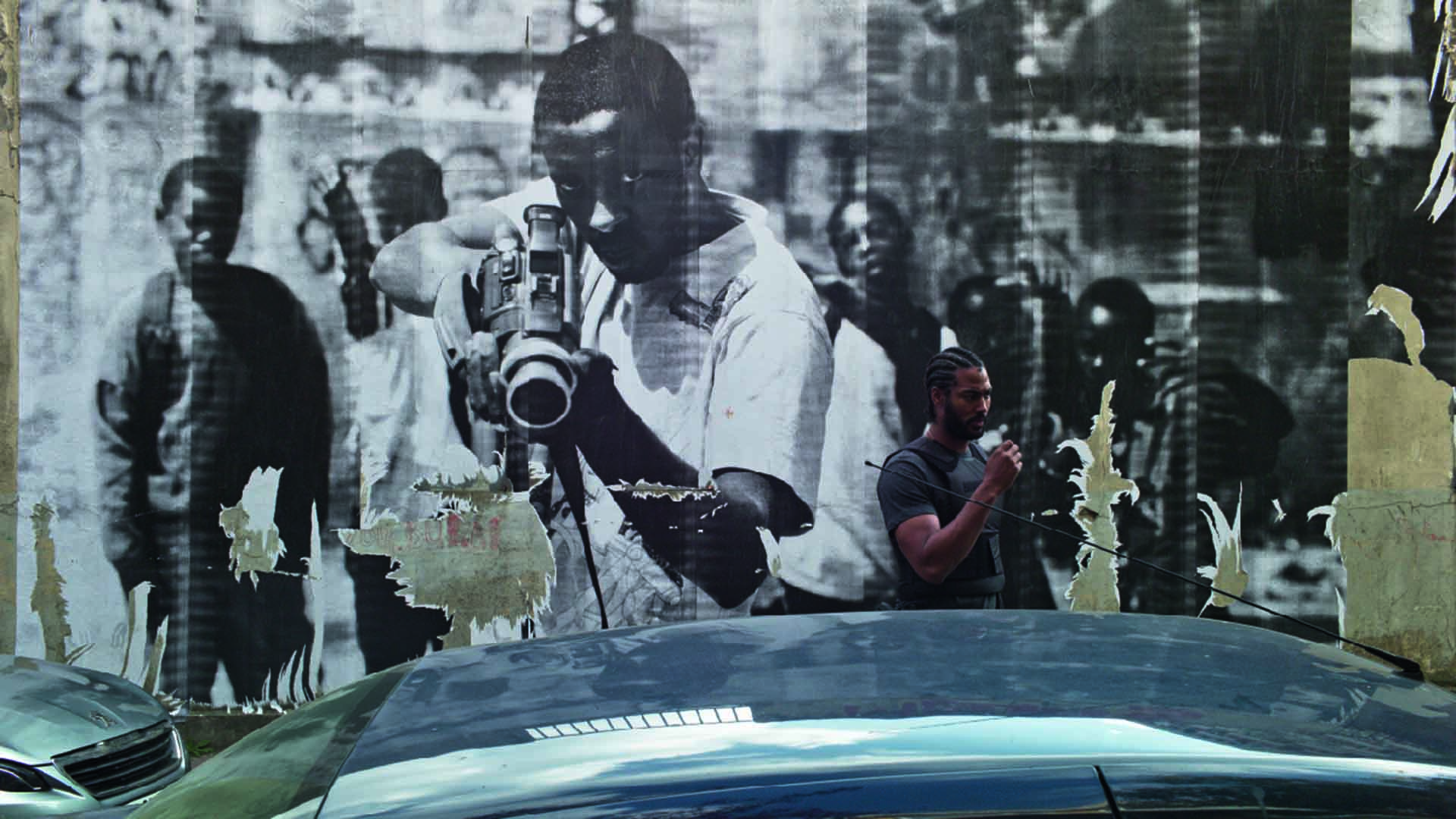Les Misérables
Set in the banlieues of Paris, this Oscar-nominated French drama is a film of explosive emotional and visceral power.
Overview
It's with a wink and a nod that Ladj Ly names his Cannes prize-winning, Oscar-nominated crime-thriller after one of the most famous French works there is: Les Misérables. And it's with the same irreverent spirit that the first-time feature director lets audiences literally hear the people sing in the movie's opening moments, even though this definitely isn't a musical. Set in 2018, the film's early crowds are belting out 'La Marseillaise'. France has just won the FIFA World Cup, Avenue des Champs-Élysées is alive with soccer fans waving flags and celebrating, and everyone is chanting the national anthem with beaming pride. Shot documentary-style, the city's residents couldn't be more joyous, including when the movie's moniker — literal translation: the miserables — is humorously splashed across the screen. But, despite the ecstatic scenes that kickstart Ly's feature, this is still a rousing cinematic song of angry Parisians.
Nearing 160 years since Victor Hugo immortalised the Montfermeil commune, using the Paris district as a key setting in his well-known work, this Les Misérables heads there to tell a different story. Or, to be exact, to explore comparable themes in contemporary France — and to interrogate the reality of life in Les Bosquets housing estates in one of the capital's banlieues. The latter and their communities have featured in the likes of 1995's La Haine and 2014's Girlhood before, two hands-down French movie masterpieces, but the approach here is especially inspired. Drawing parallels with a globally known, much-adapted, long-popular classic to shine a spotlight on modern-day class and cultural clashes is smart and savvy and, in the hands of a filmmaker from the area who is already known for making documentaries about the area, results in a particularly compelling and confronting piece of cinema.
Every neighbourhood bubbles with stories. So, focusing on Les Bosquets, Ly relays as many tales as he can. With propulsive and fittingly restless energy, his film flits between the locale's cops, kids and gangs — with struggles between all three groups reaching boiling point over the course of two summery and eventful days. The catalysts: familiar prejudices, long-held beefs, a stolen lion, a wrongful shooting and some controversial drone footage. Anti-crime brigade officers Chris (The Eddy's Alexis Manenti), Gwada (C'est tout pour moi's Djebril Zonga) and the newly transferred Stéphane (Dunkirk's Damien Bonnard) are never far from the trouble, sometimes causing it, sometimes trying to stop it. But two local adolescents also play pivotal parts, with young Issa (debutant Issa Perica) responsible for the jungle cat missing from a visiting circus troupe and shy teen Buzz (fellow newcomer Al-Hassan Ly) the owner of the highly sought-after drone.
While Les Misérables takes place just two years ago, Ly, actor and scribe Manenti, and their co-screenwriter Giordano Gederlini (Mother's Instinct) use events from a decade earlier as their basis, with Montfermeil one of the sites of the 2005 French riots. Ly's documentary short 365 Days in Montfermeil chronicled the chaos and the police brutality from the inside, as shot at the time — but here, he dramatises it. It's no wonder, then, that Les Misérables proves unrelentingly terse and always on edge, as well vehemently unafraid to filter real-world unrest through every frame. It's just as unsurprising that it isn't always subtle, but given the complicated terrain that it traverses, it needn't be. As a portrait of social tensions drawn from real-life situations, this is a film of explosive emotional and visceral power even when it's clearly lacking in nuance.
Les Misérables makes a range of statements, including pondering the powder-keg banlieue environment, as well as the similarities between the film's cops, children and thugs — all of whom, in their own ways, are trying to get by. Ly contemplates how one event can escalate, detonate and spark a chain of chaos, and, Hugo-style, how insurrectionary acts come about. There's a message in the simple act of calling upon the riots the filmmaker lived through for a movie set years later, too, and it's one of Les Misérables' most potent. The idea that Ly's fictionalised story doesn't just lift details from reality, but that its ins and outs have never stopped being relevant to or reflective of life in Les Bosquets, purposefully hits hard.
Also having an impact, and by design: the jittery on-the-ground camerawork that conveys tension, terror and heartbreak in equal measures; and the sky-high, bird's-eye drone footage that reminds viewers visually about perspective and the bigger picture. Indeed, Ly and his cinematographer Julien Poupard (Divines) ensure audiences feel like they're traversing Montfermeil's streets, and that they've seen every corner of the area from every angle as well. The urgent electronic score by Pink Noise does a cracking job of setting the mood, as does the brisk pace set by editor Flora Volpeliere (The Hookup Plan). And, cast-wise, Les Misérables' experienced actors and fresh faces alike all impart a sense of authenticity. By the time all of the above has worked its magic, no one is singing 'La Marseillaise' exuberantly, of course, but viewers have witnessed a stunning film with revolution at its heart.






